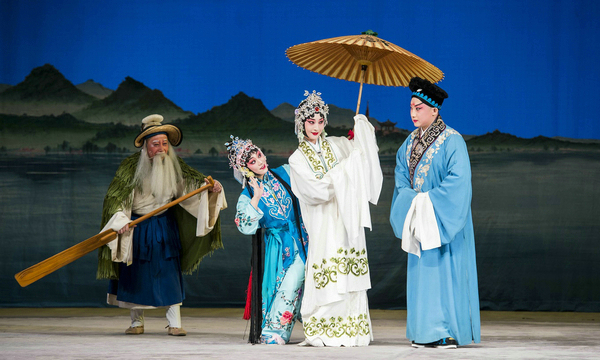

Xu Xian, when brought back to life, was taken by Fa Hai to the Jinshan Temple, or Golden Hill Temple. To reclaim her husband, Bai Suzhen unleashed the waters and flooded the temple, coining a well-known Chinese idiom.
Despite the multifaceted plots and twists, there are two main endings to the Legend of White Snake. In one version, Bai Suzhen, after giving birth to her son, was punished and was imprisoned in Hangzhou’s Leifeng Pagoda on the banks of the West Lake, while her husband chose to become a monk.
Compared to this tragic ending, the second version is more widely accepted, as it offers the folk tale a much happier ending. According to this version, the couple’s son, who was top scholar in the country, offered sacrifice to his mother in front of the Leifeng Pagoda, causing the pagoda to collapse and enabling the family to reunite.
More than just a love story, the Legend of White Snake deals with themes of gratitude, struggle and persistence and is counted as one of China's most famous folktales which has given rise to numerous works including folk operas, TV dramas, musical performances and animations. The legend was listed as a national intangible cultural heritage in 2006.